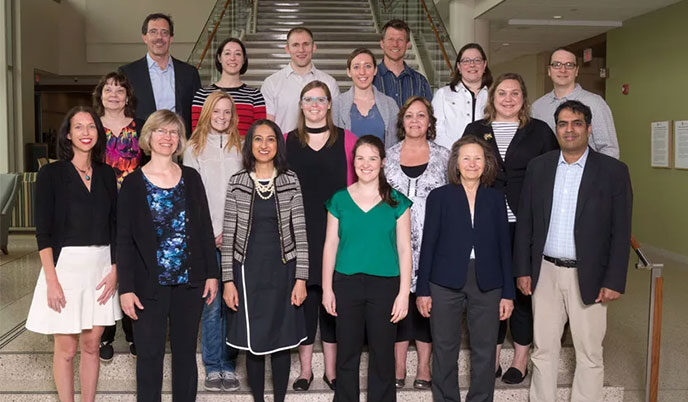
Obesity: ethical dilemma and public health challenge
In spring 2013, faculty members from the University of Wisconsin School of Medicine and Public Health Department of Medical History and Bioethics orchestrated a gathering of national thought leaders who debated a wide arc of viewpoints related to obesity.

Social-class discrimination contributes to poorer health
Discrimination felt by teenagers based on their social class background can contribute to physiologic changes associated with poorer health, according to a new study led by a University of Wisconsin–Madison researcher.

Exposure to pet and pest allergens during infancy linked to reduced asthma risk
Children exposed to high indoor levels of pet or pest allergens during infancy have a lower risk of developing asthma by seven years of age, new research supported by the National Institutes of Health reveals.

Researchers study real-time flu surveillance
High-tech flu surveillance within clinics can accurately track, in real time, early flu activity, peak season and the end of the flu season, according to University of Wisconsin School of Medicine and Public Health researchers.

Flu surveillance continues with $2.4 million CDC award
A researcher has received a $2.4 million award from the Centers for Disease Control and Prevention (CDC) to continue his work that has found flu activity in schools is a good warning system for flu activity in the community.

Investigators are tracking America’s deadliest killer: Tobacco addiction
Mike Eheler didn’t want to die and leave his wife and four kids without him. Like most smokers, he became addicted as a kid. He had smoked for 23 years, his grandmother had died from lung cancer, and now he could feel the toll on his health — and on his ability to support his family in the way he’d dreamed. It was slipping away, one $7 pack of carcinogens at a time.

New line of population health research takes guts
“You know, if you’re going to poop anyway, you might as well get paid for it!”

Viral infection found to increase therapeutic resistance of glioblastoma cells
A common human virus, cytomegalovirus (CMV), can convert glioblastoma (GBM) brain cancer cells into cancer stem cells with higher therapeutic resistance, according to a new study by University of Wisconsin Carbone Cancer Center researchers.

Plan tests using Tai Chi to help seniors with balance
As calming music plays in the background, 11 older women listen as physical therapist Diane Brose enters a warm-up for a discipline known as Tai Chi Fundamentals: “Feel your feet. Feel the four corners of your feet. Your knees are soft, your tailbone is heavy. Don’t worry about yesterday, tomorrow will take care of itself. Now, we’re here, and it’s safe.”

Wisconsin obesity rates higher than previously thought
Obesity rates among Wisconsin adults are higher than previously reported for the state. According to findings from the Survey of the Health of Wisconsin (SHOW), a population-based health examination survey, 39.4 percent of Wisconsin adults are obese.

Graduate student honored for research on respiratory health near dairy farms
Amy Schultz, a graduate student working at the Survey of the Health of Wisconsin (SHOW), received a student achievement award at the American Public Health Association’s annual meeting.

Study: Cost, lack of insurance coverage are primary predictors of poor oral health
One in five adults in Wisconsin is not receiving needed oral-health care and an estimated 15 percent have cavities.